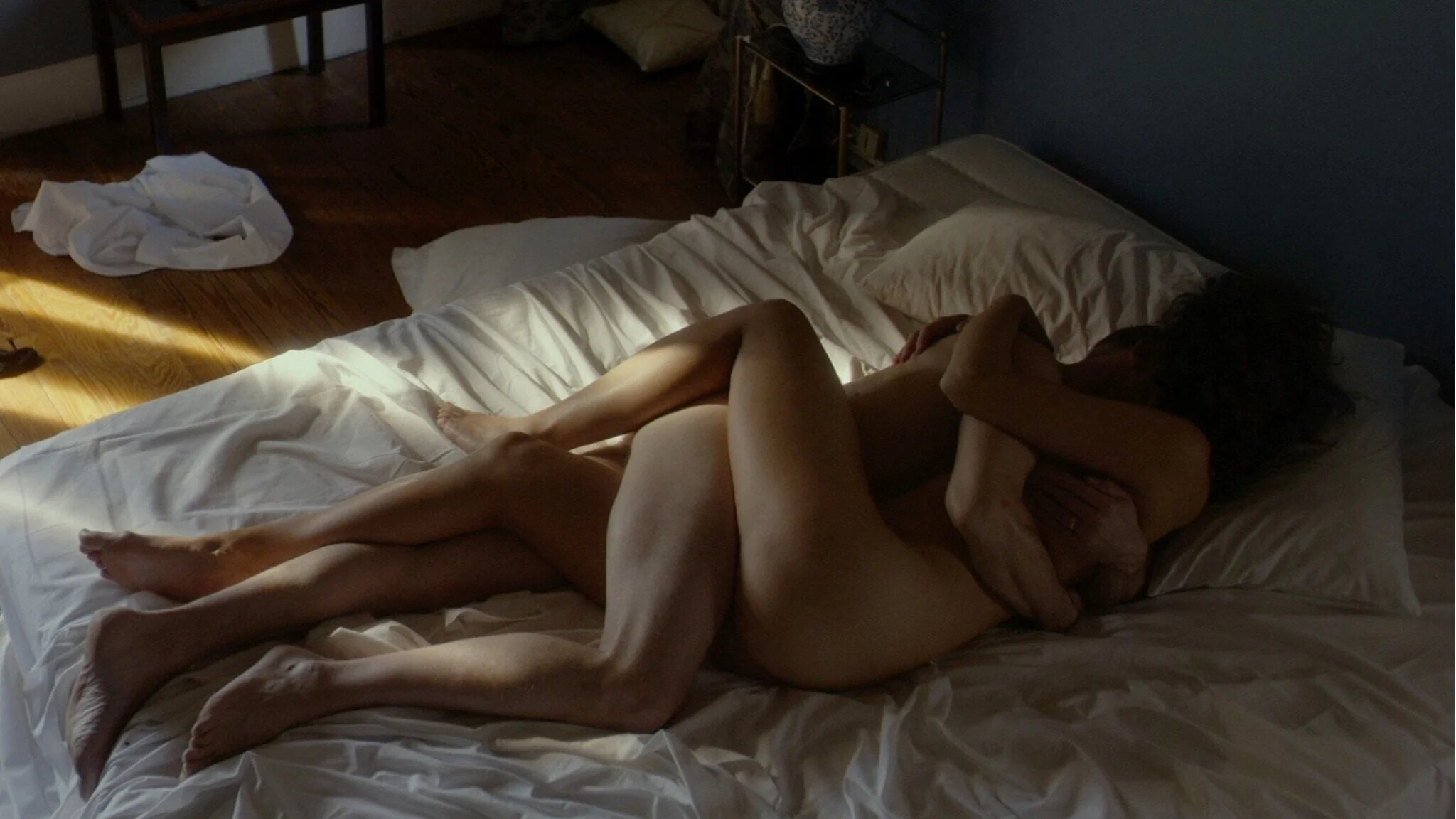The Blue Room
An adaptation of a work by Georges Simenon which is not what you would usually expect from him.
Mathieu Amalric played a triple role in this adaptation from the work of Georges Simenon: he stars in the leading role, wrote the screenplay with his partner Stéphanie Cléau and again (following on from the 2010 film On Tour) directs. He makes a much stronger impression as a filmmaker this time around since The Blue Room is structured in a highly cinematic way. Not having read the novel, I cannot say if the film is true to its source and it could be that the emphasis is different. The majority of Simenon's books that are outside the Maigret canon are usually thought of as psychological dramas and this story centred on Amalric's character, Julien Gahyde, ought to fit the description, but that is not how it plays on screen.
The film introduces us to Julien, a married man, in the blue room in which he regularly has a liaison with his mistress, Esther Despierre (played by Cléau). She too is married so, depending on how seriously each one takes their relationship, their respective spouses might each qualify as a potential murder victim while, if Esther's husband (Olivier Mauvezin) suspects what is going on, it could be Julien who is in danger. Almost at once we find Julien in custody being questioned by an examining magistrate (Laurent Poitrenaux), but we don't know what crime has been committed or why Julien is being held. As he answers his interrogators who include a psychologist (Blutch), we see in bits and pieces the events the he is describing and meet his wife (Léa Drucker) and his young daughter (Mona Jaffart). In this way the film moves back and forth in time, always clearly and with some smart editing from François Gédigier. Playing compactly at 75 minutes The Blue Room keeps us guessing throughout as to the nature of the tale being told.
In this way Amalric's film provides an engaging entertainment, but the approach is such that there is a price to pay. The success of The Blue Room is as an intriguing puzzle which, necessarily enigmatic along the way, challenges us to guess what the storyline will prove to be and frequently springs pleasing dramatic surprises. That continues to the end when in a second blue room, that of the local court, the film reaches its conclusion with an oblique indication of what probably happened. There is even one thread that relates back to traditional film noir. But in sustaining the mystery the film has to hold back from anything that would involve us emotionally with the characters since their real nature has to be left uncertain for so long. Whatever else he was, Simenon was not the kind of writer who might be expected to offer us this kind of mystery puzzle, so the book may be something else. On its own relatively modest terms, however, the film works well.
MANSEL STIMPSON
Cast: Mathieu Amalric, Stéphanie Cléau, Léa Drucker, Laurent Poitrenaux, Blutch, Mona Jaffart, Véronique Alain, Paul Kramer, Alain Fraitag, Olivier Mauvezin, Serge Bozon.
Dir Mathieu Amalric, Pro Paulo Branco, Rémi Burah, Olivier Père and John Simenon, Screenplay Mathieu Amalric and Stephanie Cléau from the novel by Georges Simenon, Ph Christophe Beaucarne, Art Dir Christophe Offret, Ed François Gédigier, Music Grégoire Hetzel, Costumes Dorothée Guiraud.
Alfama Films/Arte France Cinéma/Cofinova 10/Canal+/Ciné+-MUBI.
75 mins. France. 2014. Rel: 9 September 2016. Cert. 15.


